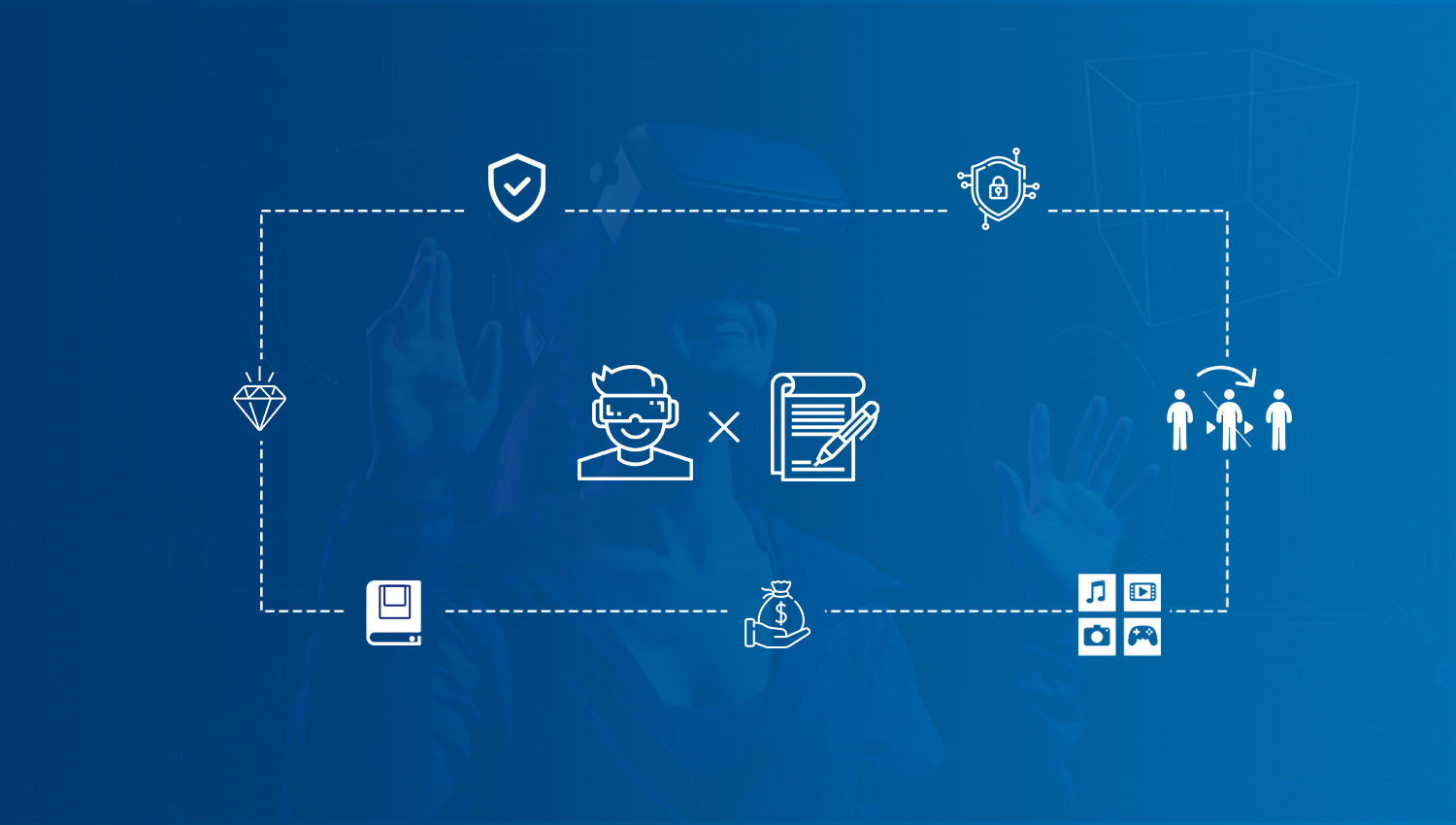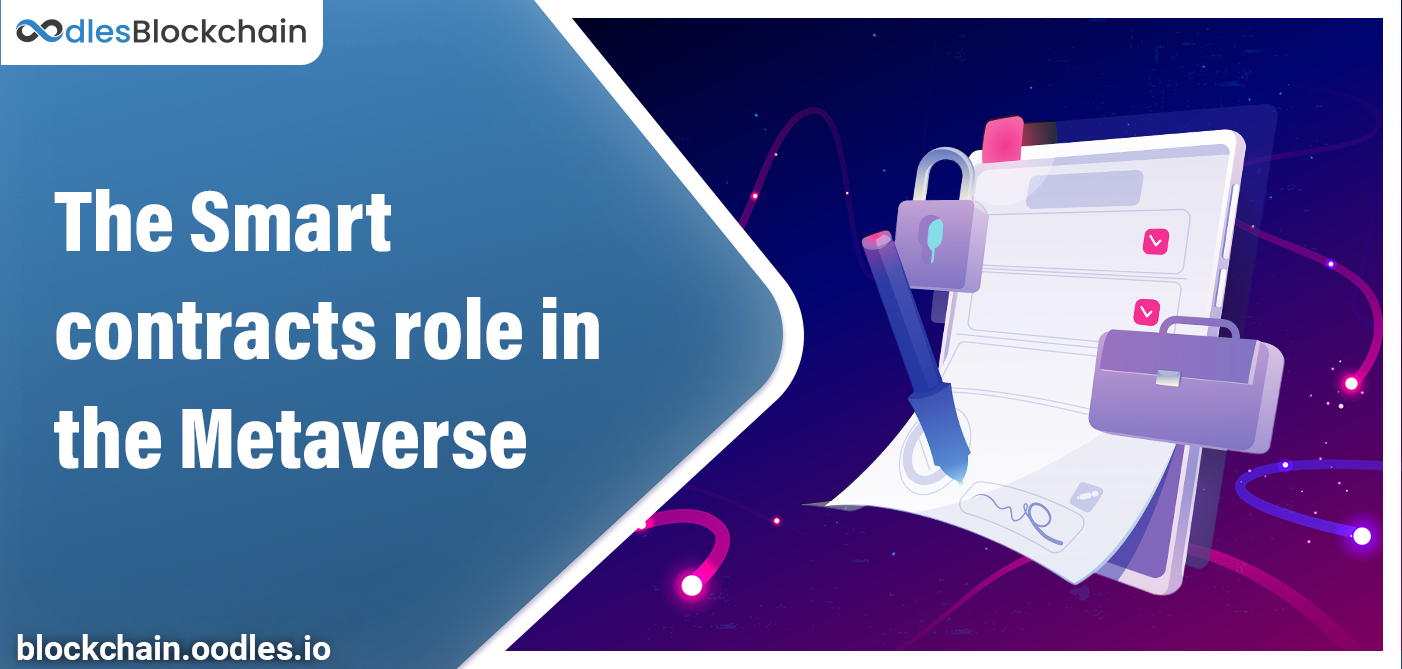-
The decentralized Metaverse is just one of the many innovative new initiatives that have recently emerged as a result of inventions in the blockchain and smart contract development space. Blockchain enables the decentralization of Metaverse projects, which has additional advantages such as better governance, DAO (Decentralized Autonomous Organization) integration, and interoperability components.
Businesses can select a blockchain protocol from a wide range of possibilities based on the needs of their projects, but the demand for platforms that support smart contracts is fairly high. The smart contract and its supporting technologies enhance numerous Metaverse features and establish a new paradigm in which decentralized Metaverse apps can function.
Let's explore the Metaverse smart contract in more detail.
What is a Smart Contract
Smart contracts are computer programs that facilitate the exchange of assets or the verification of data. It sounds more complex than it is, like most technical jargon. A smart contract is a piece of software that holds off on carrying out a task until several criteria are satisfied.
Smart contracts are sometimes compared to a vending machine in analogies. You type the code for a display item. The item will be given out if the vending machine has previously been paid for it. The cost of the item is displayed if there is not enough money in the vending machine. On the blockchain and hence the Metaverse, smart contracts carry out several related tasks. Various smart contracts govern transactions in various areas of the Metaverse.
Also, Read | Exploring the Combination of DAO and the Metaverse
The Importance of Smart Contracts in the Metaverse

All of the action in blockchain systems is driven by smart contracts. Each decentralized application requires coding to implement blockchain features.
Because of the advantages that blockchains provide, smart contracts for Metaverses perform very well due to the decentralized nature of blockchain applications.
Blockchains aid in the security of Metaverse operations.
They are appropriate for trading and all forms of online commerce. In certain virtual regions of the Metaverse, NFTs are collectibles.
Blockchains facilitate the connection of Metaverse participants without the necessity for localization. Centralized systems have challenges with things like capacity issues and internet access.
Blockchain-based smart contracts make it possible for Metaverse groups to engage while enabling transaction redundancy. Without increasing the cost factor already present in centralized technology, they promote further innovation.
Smart contracts that are in operation require little to no maintenance. It enables quicker development and less expensive ongoing operations for project developers.
Last but not least, smart contracts make it possible to add new features to Metaverses without altering the Metaverse code.
We will see smart contracts, associated D'apps, and use cases as metaverse ecosystems integrated into our daily lives.
Also, Read | The Convergence of Blockchain and the Metaverse
Blockchain Platforms Driven by Smart Contracts for the Metaverse Development
Blockchains with Smart-Contract capabilities have also ushered in new metaverse technology paradigms.
Decentralized apps are now available in blockchain ecosystems and the Metaverse thanks to smart contracts.
You can include various elements under the right conditions in a smart contract. Within a Metaverse framework, these features enable higher engagement and use-case situations.
Here are a few blockchain initiatives that will be present in the future Metaverse ecosystems.
Also, Read | Getting Started with Metaverse Development on Blockchain
Ethereum will Drive Metaverse ecosystems of dApps
The first blockchain powered by Smart Contracts is Ethereum. Ethereum created the decentralized application (D'App) market with its many standards. Ethereum Virtual Machine (EVM) is now widely popular as the norm in the web3 sector. With additional functionality, several blockchains are EVM-compatible.
Developers have been able to host their Metaverse projects on the Ethereum blockchain despite these standards. These initiatives include RedFox Labs (RFOX), Star Atlas (ATLAS), Game Credits (Game), Radio Caca (CACA), and others.
We will observe a clear movement towards the Metaverse as the trip towards ETH2.0 signs of progress. For many years to come, the ETH 2.0 ecosystem will continue to define the web 3.0 ecology.
Also, Read | Getting Started with Metaverse Development on Blockchain | Part 2
Avalanche Emerges as a Significant Alternative
Avalanche, one of the top web3 blockchains with promise, came into the existence in the middle of 2020. Once they adopt it, developers can benefit greatly from Avalanche's architecture.
Developers of the Metaverse have taken a shine to the Avalanche blockchain thanks to the availability of acceleration, incubation, and venture capital capabilities. They consist of Kryptomon, ApeIn, and Kalao.
Avalanche has various benefits that make it appropriate for use in Metaverse applications. Three subchains—X-Chain, C-Chain, and P-Chain—allow developers to construct projects with a wide range of features and specifications.
Scalability does not become an issue due to its quick transaction speeds, while Proof-of-Stake keeps transaction costs among the lowest in the cryptocurrency industry.
Also, Read | The Potential of the Metaverse | Use Cases and Advantages
BNB Chain can Enable Significant Revenue
The biggest crypto exchange, Binance, runs the most recent iteration known as, BNB chain, a smart contracts platform. The chain integrates well with the other exchange products because it employs BNB Coin from Binance as its governance token.
BNB Chain supports large-scale applications like social networks, videogame platforms, and metaverses quite efficiently. Additionally, the chain includes a brand-new MetaFi ecosystem that unites initiatives like Metaverse, DeFi, GameFi, SocialFi, Web3, and NFTs under one roof.
Additionally, Binance provides a decentralized wallet service on the BNB Chain through its most recent acquisition of Trust Wallet.
Cardano Continues to Grow
An established provider of smart contracts, Cardano, had a significant increase in popularity this year. Two different programming languages that define various parameters come into use by the platform to operate. Developers can create financial systems and Cardano applications using the two languages Marlowe and Plutus, respectively.
Connect with our blockchain and smart contract development specialists and go over your project requirements if you're seeking secure and effective smart contract development for your Metaverse project.

Our Offices
INDIA
Emaar Digital Greens, Sector 61,
Gurugram, Haryana
122011.
Welldone Tech Park,
Sector 48, Sohna road,
Gurugram, Haryana
122018.
















